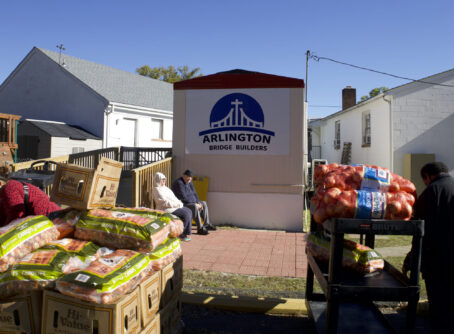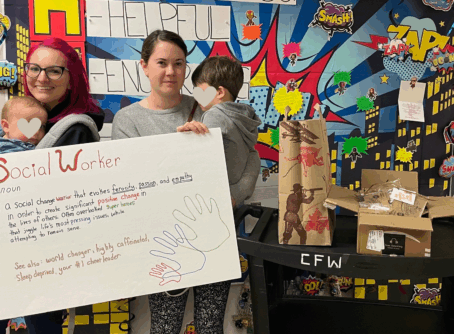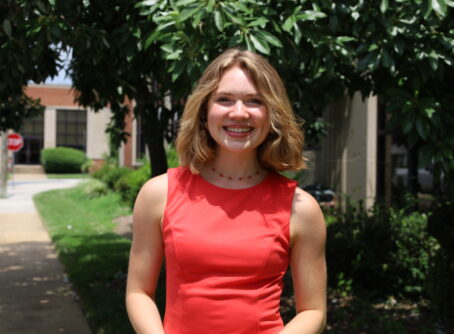From Public Schools to Faith-Based Institutions, Protecting the Freedom to Teach and Learn in Accordance with Religious Beliefs and Practice
Last month, the Religious Liberty Commission (RLC) convened two hearings at the Museum of the Bible in Washington, DC, both centered on the question of religious liberty in education—from public classrooms to private, faith-based institutions. These discussions highlighted growing tensions in how schools, educators, and families navigate faith in the modern educational landscape.
Hearing Two: Religious Liberty in Public Education (September 8)
This hearing brought together students, parents, faith leaders, and legal experts to discuss restrictions on religious expression in public schools. Several students shared personal stories of being told they could not pray, wear faith-related messages, or include God in school events.
Witnesses emphasized that these incidents often stem from a misinterpretation, often at the classroom level, of “separation of church and state”—a phrase many argued was intended to prevent state interference in religion, not suppress individual religious expression. Recommendations to the Commission included:
- Expanding Equal Access Act protections to include primary schools;
- Publishing federal reports identifying which states uphold or limit religious liberty in education;
- Issuing clearer Department of Education guidance to ensure school policies reflect recent court rulings on student religious rights.
President Trump, attending the hearing, announced new federal actions to protect prayer in schools and highlighted his administration’s work on school choice and antisemitism investigations.
Afternoon panels examined antisemitism on campuses, student club recognition policies, and unequal treatment between religious and secular expression. Attorneys and educators called for public schools to model free expression as a civic virtue essential to a healthy society.
Hearing Three: Religious Liberty and Faith-Based Education (September 29)
The third hearing opened with a tribute to the late Charlie Kirk, whom Chairman Lt. Gov. Dan Patrick described as a defender of faith and liberty. Speakers including Dr. Hutz Hertzberg and Pastor Jentezen Franklin reflected on his legacy of conviction and courage in faith-driven civic life.
The hearing then shifted to deeper discussions about the autonomy of faith-based educational institutions.
- Dr. Larry Arnn, President of Hillsdale College, argued that recovering a sense of wonder and moral purpose—rooted in faith and the recognition of objective good—is essential for national renewal.
- Witnesses such as Rabbi David Zweibel, Father Robert Sirico, Dr. Todd Williams, and John Bursch warned of state overreach through new accreditation and nondiscrimination policies that pressure religious schools to compromise their faith-based missions.
- A panel of school teachers and staff shared their experiences of encountering school policy that limited their religious exercise by banning the use of religious symbols, public prayer, and exemption from using students’ preferred pronouns.
- Cases from New York and Michigan were cited, where government standards and court decisions threaten religious hiring rights and curriculum integrity.
The day’s final panels addressed how funding mechanisms can either safeguard or endanger religious freedom in education. Cases like Carson v. Makin (Maine) and a similar lawsuit in California demonstrate how parental choice in education remains entangled with questions of government funding and religious inclusion.
Dr. Francis Beckwith closed with a call for “epistemic modesty”—the humility to acknowledge that reasonable people may reach different convictions about faith and truth, yet must still coexist in mutual respect.
Key Themes and Recommendations
Across both hearings, recurring recommendations included:
- Protect voluntary prayer and student expression of faith in public schools through clearer federal guidance and consistent local enforcement.
- Preserve the autonomy of faith-based schools to hire and teach in accordance with their religious convictions without coercion to adopt secular ideologies.
- Safeguard funding equity and parental choice, ensuring public resources and tax-credit programs do not discriminate against religious institutions.
- Affirm the importance of biological reality and human dignity, encouraging policymakers to ground nondiscrimination law in scientific and moral truths that promote human flourishing, while refraining from establishing sexual orientation and gender identity (SOGI) as protected classes in ways that could erode religious freedom.
- Promote civic friendship and civil discourse within educational institutions to strengthen mutual respect amid ideological and theological diversity.
CPJ Reflections
Together, the hearings revealed how religious liberty must be protected both within public education systems and for faith-based educational institutions. Public schools must ensure families are informed and respected in curriculum matters that touch on deeply held religious convictions and students can freely express their faith without fear, while faith-based schools must retain their right to operate according to their theological convictions without government coercion.
At the Center for Public Justice, we affirm that the family is primarily responsible for the education—public or private—and nurture of their children. The family partners with its communities and institutions to fulfill that responsibility. Upholding religious freedom in education ensures that the future generations learn not only civic knowledge but also how to model civility amid a religiously diverse political community. As policymakers, educators, and citizens engage these issues, CPJ invites continued reflection on how faith and freedom together enhance the moral fabric of a healthy republic.
Girien R. Salazar, Ph.D., is the Director of Faith-Based Policy and Research at the Center for Public Justice.
Melissa Mercedes is the Policy Associate at the Center for Public Justice.



